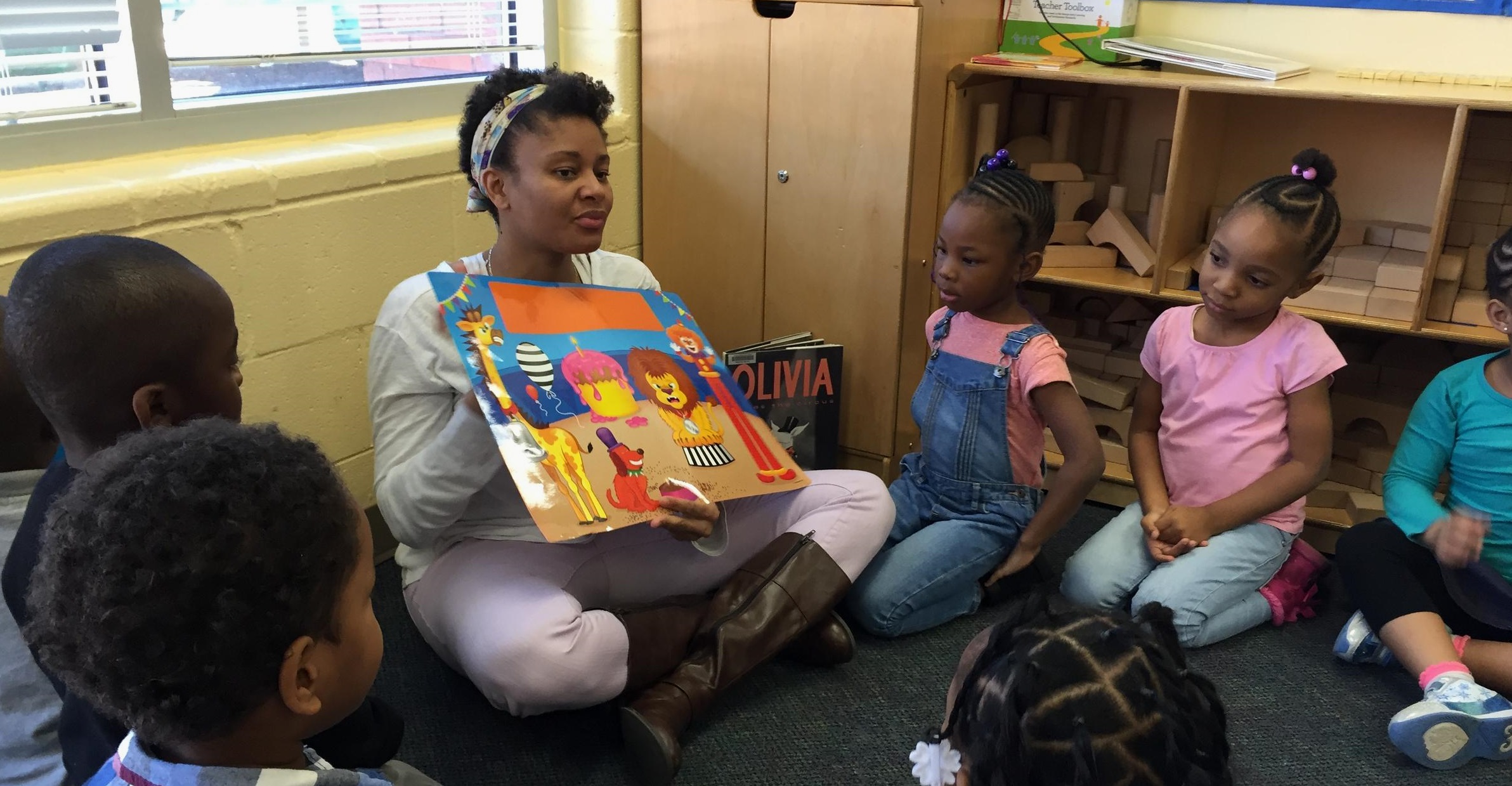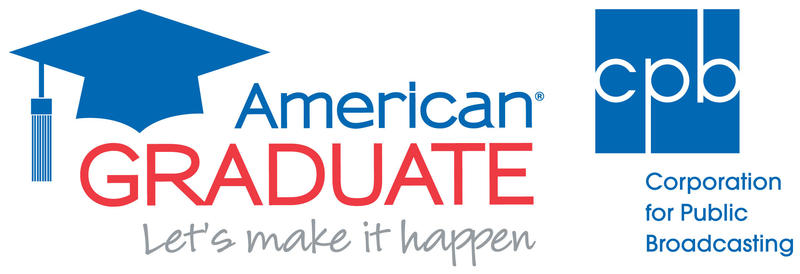Atlanta School Tackles Elementary Reading In Preschool

Kate Sweeney / WABE
This story is part of WABE and American Graduate’s Advancing Atlanta: Education series. For more stories, click here.
At Dunbar Learning Complex, literacy education begins young.
Take this group of 22 wiggly four-year-olds, bursting with post-naptime energy. Jessica Johnson has wrangled them into a loose version of a circle to tell a story together.
“Once upon a time!” she begins, matching their noisy enthusiasm decibel for decibel. The tale they weave, of a tiger getting angry at a dog for spilling his food, is kind of silly and whimsical—but it’s also learning.
Johnson says that at the pre-K level, she focuses on things like alphabet recognition, phonemic development and even some writing—“those basic skills so they’ll be able to read,” she says. This falls in line with pre-K standards across the state.
There’s just one key difference with Johnson’s class. She’s a teacher with the preschool center Educare, and her pre-K class is housed in the same building as Dunbar Elementary School in the Mechanicsville neighborhood. The two schools actually work together; they share student records, and teachers even get together for monthly meetings to talk shop.
This coordinated approach is making a difference, says Dunbar principal Karen Brown Collier. “Can’t start when they’re kindergartners!” she says. “It has to start when that baby first comes.”
And babies do come here. Educare takes children as young as six weeks—which means that some of the students in the complex might spend the majority of their waking hours here, their first 11 years of life.
A lot of the focus for many of those years is reading.
Third grade is an all-important year for reading in Georgia. By then, students are expected to have mastered the basics, and the curriculum shifts to reflect this. Rather than learning to read, students are expected to use reading to learn other subjects like social studies and science.
Reading mastery is measured on the Georgia Milestones Test. 2016 is the second year schools will administer it. Last year, Georgia students as a whole performed worse on the new test than they did on the old CRCT, which it replaced.
Dunbar is no exception, with 58 percent of its third-graders failing the English portion of the test.
That’s why upstairs, third-grade teacher Angel Waddell is in full test-prep mode. She’s leading her students in an exercise like one on Georgia Milestones in comparing and contrasting.
Waddell says a consistent program like the one here, which begins in a child’s earliest years, is especially significant in a place like this southwest Atlanta neighborhood. Dunbar is a Title I School, which means at least half its students are low-income.
“Familiarity will prevent a lot of discomfort,” Waddell says, “especially in this area, with the economic level, the educational level.”
She says some parents in this community are intimidated by academic settings, and think, “’I don’t know what to say to a teacher. I don’t know how to interact.’”
“But,” Waddell adds, “because we’ve been around each other now for all these years, if you don’t know me personally, you’ve seen me in the area.”
That familiarity goes beyond academics. The program also keeps track of the health and well-being of children’s entire families, starting when they enter the childcare center.
Dr. Nicole Patton Terry leads a team at Georgia State University that tracks data at Educare centers like this one. She says this approach makes a difference in neighborhoods hard-hit by poverty.
“Things like reduced number of visits to the ER, increasing numbers of children being on schedule with immunizations and child well-visits,” Terry says. “And, as a result, increased attendance.”
She says all of that together “is what gets you that third-grade reading score.”
Her team’s preliminary data shows that 90 percent of Dunbar students who went through this program starting at pre-K performed at or above expectation in kindergarten oral vocabulary. By third grade, that figure was 83 percent.
That other indicator of performance, the Georgia Milestones Test, takes place in April.
9(MDAxODM0MDY4MDEyMTY4NDA3MzI3YjkzMw004))









